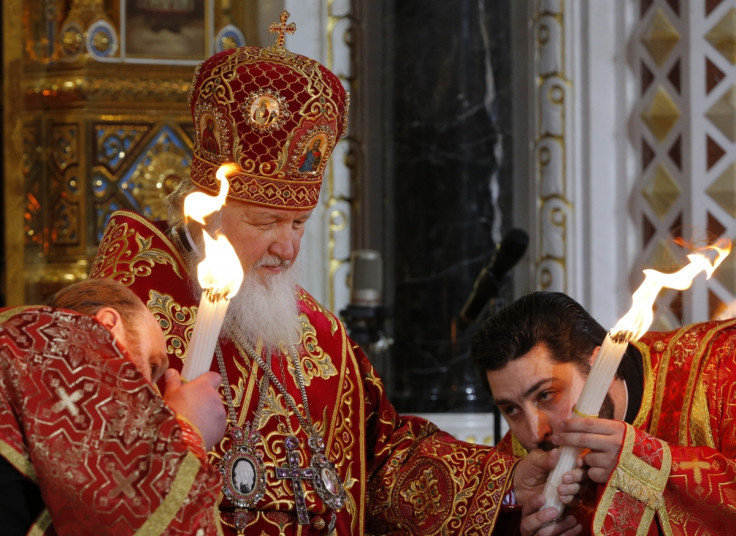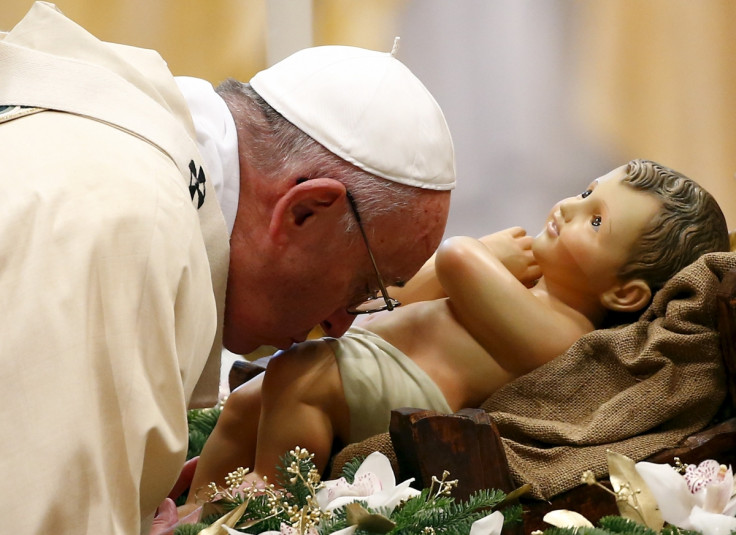Pope meets Patriarch: What is the difference between Orthodoxy and Catholicism?

More unites than divides the Russian Orthodox and the Catholic Churches, and there will be a desire for unity when their leaders talk in Cuba on 12 February in Cuba.
This historic meeting between Pope Francis and Patriarch Kirill will be the first between the heads of the respective traditions.
Followers of the faiths share many beliefs; both believe in sacraments, both venerate Mary as the mother of God, both believe that Jesus Christ was divine and died for the sins of humanity and both believe in the Eucharist as the incarnation of Jesus Christ.
However some of the differences are irreconcilable. The biggest issue surrounding divinity is the Orthodox Church's disagreement with the Catholic Church's view that the Holy Spirit proceeds from the Father and the Son.
This decree is known as "filiaque", Latin for "and the son", words that were added to the Creed in the 4<sup>th century which Christians profess. The Orthodox tradition rejects this, believing that the Holy Spirit only proceeds through the Father.
Also, the Orthodox faith disputes the status of the Pope. They do not believe in papal supremacy and does not see him as infallible.
Some of the other differences in how adherents practice their faiths are more cosmetic.

Catholics use statues to represent their saints while Orthodox followers use paintings.
The Orthodox do not kneel during services, Catholics do. In the Orthodox Liturgy, the bread of the Eucharist is leavened, for Catholics, it is unleavened and Orthodox priests may marry before ordination while Catholic clergy are celibate.
More recently, the Russian Orthodox has accused the Catholic Church of poaching converts in Russia.
These long-standing differences will remain, and the Russian Orthodox church's spokesman, the Metropolitan Hilarion of Volokolamsk referred to a more recent one about a row over the status of the Uniate Church in Ukraine.
However he said discussions in Havana would focus on the persecution of Christians.
"The situation as it has developed today in the Middle East, in North and Central Africa and in some other regions, in which extremists are perpetrating a real genocide of the Christian population, has required urgent measures and closer cooperation between Christian churches."
Peter Williams, of the group Catholic Voices, told IBTimes UK that the meeting is highly significant and that the relatively warmer relationship between the Pope and Russian president Vladimir Putin may have had an effect in paving the way for the meeting.
"Patriarch Kirill has always been a more ecumenical member of the Russian hierarchy and this may signify that he now has sufficient confidence in his position there that he feels he can accept and make overtures between the Pope and himself directly.
"Their joint concern about regarding the persecution of Christians in the Middle East will form common ground. This could see the beginning of a real thaw in relations that allows for greater Catholic-Orthodox unity in the future," he said.
The Pope already has had warm relations with the Patriarch of Constantinople and they have attended each other's feast days in the past.
Now, there is the prospect of warmer ties between Rome and the Russian Orthodox tradition, something that previous pontiffs have failed to do.
© Copyright IBTimes 2025. All rights reserved.






















